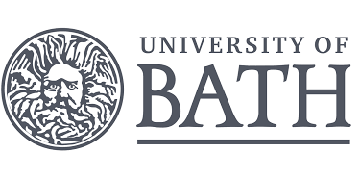University of Bath: Social sciences to play vital role in meeting UK’s net zero goals
The investment in an environmental leadership team worth £6.25 million, starting this month, will ensure the UK’s world-leading social science expertise plays a central role in interdisciplinary environmental science research.
Institutional, community and individual behavioural change will be fundamental to securing net zero by 2050. The team’s expertise will hasten our understanding of how to develop solutions that will help us reach net zero as well as other environmental, biodiversity and sustainability goals.
The new team will bring world-leading social scientists and major national and local organisations together to highlight the skills and insights of social scientists when it comes to research, policymaking and action. Their aim is to foster new ideas and solutions based on evidence, data and expertise to support policy and decision makers across the UK.
The collaborative climate and environment social science programme, headed by Professor Patrick Devine-Wright of the University of Exeter, will be led by the universities of Exeter and Surrey as part of a core team that includes the universities of Bath, Leeds and Sussex and the Natural Environment Social Research Network (Natural Resources Wales, NatureScot, Natural England, Environment Agency and Forest Research). Programme partners include other major UK and international universities, devolved governments, energy and water companies, local councils, science centres and the National Trust.
Together, the team will ensure the UK leads the world in understanding how to achieve the human and institutional change needed to deliver net zero and other critical environmental, biodiversity and sustainability goals. The Advancing Capacity for Climate and Environment Social Science (ACCESS) five-year programme will: map, assess and learn from current expertise; empower environmental social scientists with the knowledge and skills required to support policy or institutional changes; and create a world-class data and information hub to enable innovative solutions.
Environmental psychologist at the University of Bath and Director of the Centre for Climate Change and Social Transformations (CAST), Professor Lorraine Whitmarsh MBE, is a co-investigator on the ACCESS project.
She explained: “We know that radical social and behavioural change is needed to tackle climate change and other environmental issues – and this funding will champion and apply social science insights to achieve this change. ACCESS will bring together researchers, policymakers and wider society to find fair and effective solutions to environmental challenges, while also improving wellbeing and prosperity.”
The UK Climate Change Committee’s 2021 progress report to Parliament was clear that actions from businesses, consumers, workers, households and citizens are vital to reach the net zero target. The International Energy Agency’s ‘Net Zero by 2050: A Roadmap for the Global Energy Sector’ 2021 report also highlighted the importance of behavioural change in achieving net zero: ‘Behaviour change plays a role in almost two thirds of the emissions reductions. Most of this comes through consumer adoption of low-carbon technologies such as electric cars, but 8% of total emissions reductions come from directly changing practices such as reduced business flights.’
ESRC’s Interim Executive Chair, Professor Alison Park, said: “The UK government has set a national target of carbon neutrality by 2050, and an interim target to cut emissions by 78% by 2035. Tackling the climate and ecological crisis requires social science research insight, leadership and coordination across disciplines to catalyse the change required.
“ESRC is investing in this new world-leading social science and interdisciplinary team of experts to provide leadership for climate and environmental social science research at a crucial time. Their work will support the transition to a sustainable and biodiverse environment, and a net zero society. ESRC will work with them to develop further investments within this important thematic area.”

